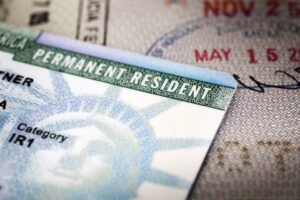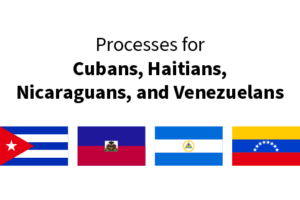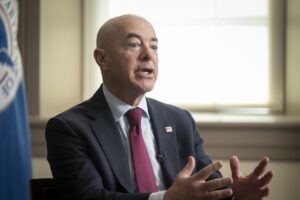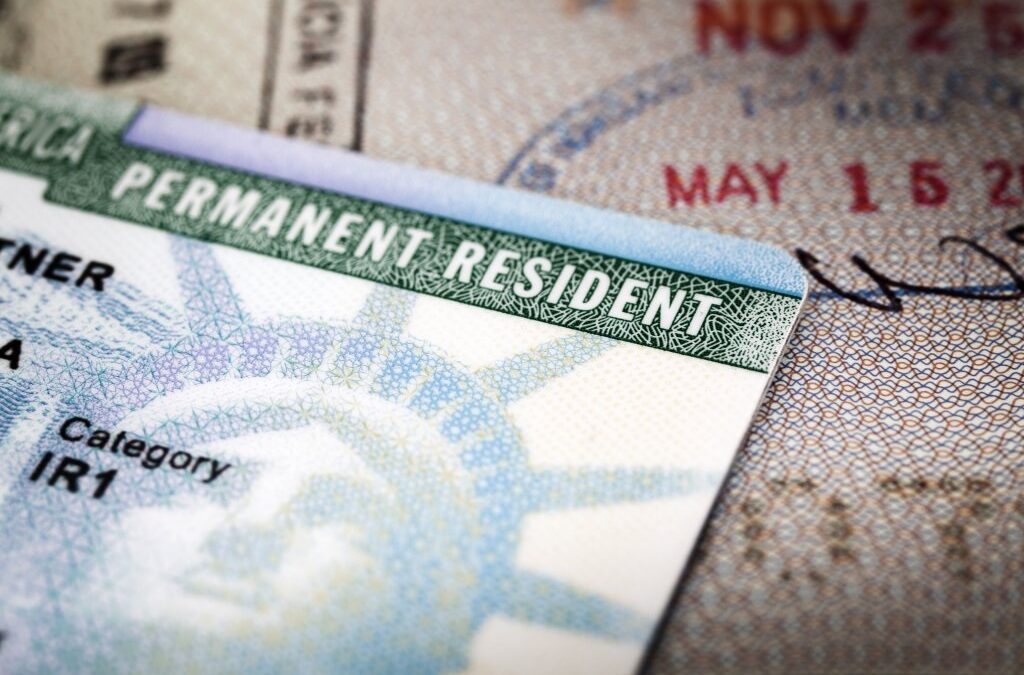
by Nassim Arzani | Apr 5, 2023 | News
Nearly 7,000 comments were submitted in response to a proposed increase in U.S. visa fees, with the majority voicing fierce opposition and concerns.
Last week, the U.S. Citizenship and Immigration Services ended public comment for a proposed fee increase unveiled by the Biden administration in January. The deadline for public comment was initially set for March 6, but was extended another week until March 13 due to a technical issue.
Under the proposal, application fees for most categories of immigration to the United States would increase. Some fees, like those for employment-based visas and family-based immigrant applications, will face dramatic increases.
Application fees for U.S. citizens and permanent residents hoping to sponsor family members for permanent residency — known as a green card — would increase by 33% to $710, according to the American Immigration Lawyers Association.
Fees for marriage-based green card applications could double from $1,760 to over $3,640, USCIS citing the higher cost of proving a valid family relationship exists. Requests from U.S. citizens seeking to bring their fiancés to the U.S. would increase by 35%, from $535 to $720.
Immigration officials say fee increases are necessary to hire staff, reduce pending cases backlog
Federal immigration officials say the fee increases for certain petitions are necessary to recover operational costs, speed up application reviews, hire more staff, and reduce the agency’s backlog of pending cases. In 2020, the onset of the COVID-19 pandemic led to a dramatic reduction in new applications, resulting in a temporary drop in revenue by 40%, according to USCIS.
About 96% of USCIS funding comes from filing fees, rather than congressional funds, to administer the nation’s legal immigration system.
The proposed changes will not take effect until a final rule is published. It remains to be seen whether the agency will move forward with the fee increases it proposed in January, or if it will enact a modified version based on feedback from the public.
Families stuck in the visa process, however, criticized the government for proposing additional costly fees to recoup costs before addressing cases languishing in red tape.
Families must wait years while immigration issues resolve
Felesia Wade, a Clark County School District special education teachers assistant in Nevada, booked an appointment for an immigration clinic hosted by Democrat Rep. Steven Horsford on Friday to resolve an issue with her husband’s green card application. He has had to remain in Kenya for nearly two years while his case is resolved.
“How are you going to raise fees for a service that you’re not even providing?” Wade said.
Wade said she’s thankful she has already paid her husband’s application fees, adding that any additional cost would be a struggle to pay. The immigration process itself is costly, said Wade, but being separated from family incurs other costs as well.
“I teach all day and when school gets out, I turn on my app so I can do Uber so I can pay for a flight to go over there. But right now, it doesn’t even look like I’ll be able to see him this year,” Wade said through tears.
“When I inquired on the internet, you know, you get the automated message saying that they’re behind due to COVID, but we’re in 2023 now,” Wade said. “We’re still just waiting in limbo.”
In public comments filed with the USCIS, immigration advocates heavily criticized increasing fees for standard filings, especially fees affecting children.
Under the proposal, anyone applying for a change of immigration status from within the U.S. would have to pay more than double the cost, a potentially devastating financial impact on low-income applicants who lack the ability to pay the new fees.
Filing fees for children under 14 years old who are adjusting their status with a parent are currently reduced, but under the new proposal, that fee would also increase by $790, mirroring the cost of an adult application.
For an immigrant family of four, the costs of adjusting their status to become permanent residents could exceed $10,000 when adding up the total cost of the new fees proposal, according to the American Immigration Lawyers Association.
Horsford said his clinic Friday was an opportunity to expedite existing immigration cases, but also a chance to meet with Nevadans about new cases before fee increases are implemented.
“The fees create additional burdens and barriers for many of the working-class families that are already struggling to make ends meet, so while I strongly support the work of USCIS to help move these cases along in a positive manner, I don’t believe these huge increases in costs will allow as many families to seek the resolution they require. My office will continue to help as many of my constituents as possible to find that resolution,” Horsford said in a statement.
‘A severe labor shortage’
Democratic U.S. Sens. Joe Manchin of West Virginia and Kyrsten Sinema of Arizona also criticized USCIS for employment-based fee increases. The proposal would increase H-2A and H-2B visas from $460 to $1,080 and $1,090, respectively.
Last week, Manchin and a bipartisan coalition of U.S. senators sent a letter to the Department of Homeland Security urging the agency to hold off on increasing visa fees for foreign workers.
“As you know, we are at a time when many in our country are suffering from a severe labor shortage and persistent inflation. It is irresponsible to so drastically increase the price to access these essential guest worker programs while doing nothing to increase their availability,” reads the letter.
In the letter, the senators also disparaged a proposal to charge employers seeking to sponsor immigrants for permanent U.S. residency or temporary work visas an additional $600 fee to fund the USCIS asylum program, which is responsible for screening asylum seekers along the southern border.
Nevada U.S. Sens. Catherine Cortez Masto and Jacky Rosen, who are not signed onto the letter, did not respond to requests for comment on whether they disapprove or support any of the proposed visa fee hikes for families and employers.
Federal immigration officials argue the proposal will benefit the agency and the legal immigration system. The USCIS said that while the proposed rule will increase some fees, it will preserve existing fee waiver eligibility for low-income and vulnerable populations.
The proposed rule would also add new fee exemptions for certain humanitarian programs, including the asylum program. If finalized, the proposed rule would decrease or minimally increase fees for more than one million low-income filers each year, according to USCIS.
“In addition to improving customer service operations and managing the incoming workload, USCIS must continue to fulfill our growing humanitarian mission, upholding fairness, integrity, and respect for all we serve,” said USCIS Director Ur M. Jaddou in a statement announcing the proposal in January. “This proposed rule allows USCIS to more fully recover operating costs for the first time in six years and will support the Administration’s effort to rebuild the legal immigration system.”
If you have any questions regarding obtaining your Legal Permanent Residence, please contact our office to set up a consultation.
Nassim Arzani
Certified Specialist – Immigration & Nationality Law
American Law Center
4210 Riverwalk Parkway
Suite 360
Riverside, CA 92505
T 951.683.0900
F 951.683.1234
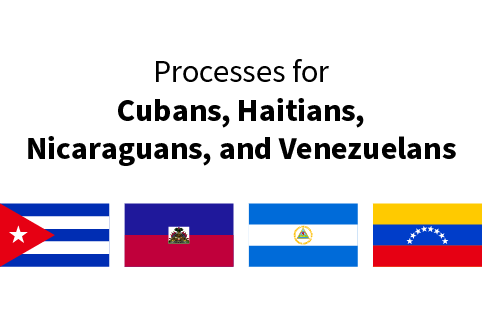
by Nassim Arzani | Apr 5, 2023 | News
DHS has announced processes through which nationals of Cuba, Haiti, Nicaragua, and Venezuela, and their immediate family members, may request to come to the United States in a safe and orderly way. Qualified beneficiaries who are outside the United States and lack U.S. entry documents may be considered, on a case-by-case basis, for advanced authorization to travel and a temporary period of parole for up to two years for urgent humanitarian reasons or significant public benefit. To participate, eligible beneficiaries must:
- Have a supporter in the United States;
- Undergo and clear robust security vetting;
- Meet other eligibility criteria; and
- Warrant a favorable exercise of discretion.
Individuals participating in these processes must have a supporter in the United States who agrees to provide them with financial support for the duration of their parole in the United States. The first step in the process is for the U.S.-based supporter to file a Form I-134A, Online Request to be a Supporter and Declaration of Financial Support, with USCIS for each beneficiary they seek to support, including minor children. The U.S. government will then review the supporter information provided in the Form I-134A to ensure that they are able to financially support the beneficiaries they are agreeing to support.
See below for additional information on the processes and country specific eligibility requirements. Additional information is also available on our Frequently Asked Questions About the Processes for Cubans, Haitians, Nicaraguans, and Venezuelans page.
Eligibility
| Term |
Definition |
| Supporter |
An individual who holds lawful status in the United States or is a parolee or beneficiary of deferred action or Deferred Enforced Departure (DED) who has passed security and background vetting and demonstrated sufficient financial resources to receive, maintain, and support the individual(s) whom they commit to supporting for the duration of their stay in the United States.
Examples of individuals who meet the supporter requirement include:
- U.S. citizens and nationals;
- Lawful permanent residents, lawful temporary residents, and conditional permanent residents;
- Nonimmigrants in lawful status (who maintain their nonimmigrant status and have not violated any of the terms or conditions of their nonimmigrant status);
- Asylees, refugees, and parolees;
- Individuals granted Temporary Protected Status (TPS); and
Beneficiaries of deferred action (including deferred action for childhood arrivals) or DED. |
| Beneficiary |
A national of Cuba, Haiti, Nicaragua, or Venezuela (or their immediate family member of any nationality) who is outside the United States and who may be considered for parole under these processes.
Immediate family members of any nationality in these processes include:
- A spouse or common-law partner; and
- Unmarried child(ren) under the age of 21. NOTE: If a child is under 18, they must be traveling with a parent or legal guardian in order to use this process.
|
Who May be Considered for Advance Travel Authorization
In order to be eligible to request and ultimately be considered for an advance authorization to travel to the United States to seek parole under these processes, beneficiaries must:
- Be outside the United States;
- Be a national of Cuba, Haiti, Nicaragua, or Venezuela; or be an immediate family member (spouse, common-law partner, and/or unmarried child under the age of 21) who is traveling with an eligible Cuban, Haitian, Nicaraguan, or Venezuelan;
- Have a U.S.-based supporter who filed a Form I-134A on their behalf that USCIS has vetted and confirmed;
- Possess an unexpired passport valid for international travel;
- Provide for their own commercial travel to an air U.S. POE and final U.S. destination;
- Undergo and pass required national security and public safety vetting;
- Comply with all additional requirements, including vaccination requirements and other public health guidelines; and
- Demonstrate that a grant of parole is warranted based on significant public benefit or urgent humanitarian reasons, and that a favorable exercise of discretion is otherwise merited.
An individual is ineligible to be considered for parole under these processes if that person is a dual national or permanent resident of, or holds refugee status in, another country, unless DHS operates a similar parole process for the country’s nationals. This requirement does not apply to immediate family members (spouse, common-law partner, or unmarried child under the age of 21) of an eligible national of Cuba, Haiti, Nicaragua, or Venezuela with whom they are traveling.
In addition, a potential beneficiary is ineligible for advance authorization to travel to the United States as well as parole under these processes if that person:
- Fails to pass national security and public safety vetting or is otherwise deemed not to merit a favorable exercise of discretion;
- Has been ordered removed from the United States within the prior five years or is subject to a bar to inadmissibility based on a prior removal order;
- Has crossed irregularly into the United States, between the POEs, after the date the process was announced (for Venezuelans, after Oct. 19, 2022; for Cubans, Haitians, and Nicaraguans, after Jan. 9, 2023), except individuals permitted a single instance of voluntary departure pursuant to INA § 240B, 8 U.S.C. § 1229c or withdrawal of their application for admission pursuant to INA § 235(a)(4), 8 U.S.C. § 1225(a)(4) will remain eligible;
- Has irregularly crossed the Mexican or Panamanian border after the date the process was announced (for Venezuelans, after Oct. 19, 2022; for Cubans, Haitians, and Nicaraguans, after Jan. 9, 2023); or
- Is under 18 and not traveling through this process accompanied by a parent or legal guardian, and as such is a child whom the inspecting officer would determine to be an unaccompanied child.
Important Note about Venezuelan Passports
The beneficiary must have a valid, unexpired passport. Certified extensions of passport validity serve to meet this requirement. If a beneficiary’s passport validity has been extended, the expiration date of the extension should be reflected as the passport expiration date. CBP will not authorize travel if the beneficiary’s passport or extension is expired.
Consistent with the National Assembly decree of May 21, 2019, certain expired Venezuelan passports remain valid. A Venezuelan passport:
- Issued before June 7, 2019 (even if expired before this date), without a passport extension (“prórroga”), is considered valid and unexpired for five years beyond the expiration date printed in the passport.
- Issued before June 7, 2019 (even if expired before this date), with a “prórroga” issued before June 7, 2019, is considered valid and unexpired for five years beyond the expiration date of the “prórroga.”
- Issued before June 7, 2019 (even if expired before this date), with a “prórroga” issued on or after June 7, 2019, is considered valid and unexpired through the expiration date of the “prórroga” or for five years beyond the expiration date printed in the passport, whichever is later.
- Issued on or after June 7, 2019, without a “prórroga” is not considered valid beyond the expiration date printed in the passport.
- Issued on or after June 7, 2019, with a “prórroga” issued on or after June 7, 2019, is considered valid and unexpired through the expiration date of the “prórroga.”
To verify if you or your loved ones qualify for this process, please contact our office to set up a consultation.
Nassim Arzani
Certified Specialist – Immigration & Nationality Law
American Law Center
4210 Riverwalk Parkway
Suite 360
Riverside, CA 92505
T 951.683.0900
F 951.683.1234




